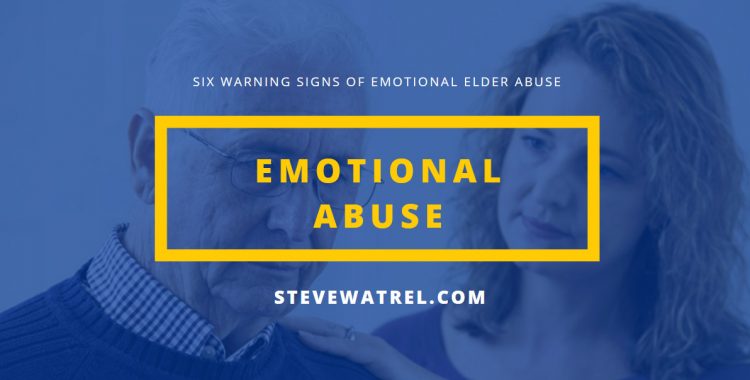Six Warning Signs of Emotional Elder Abuse
Experienced elder abuse attorneys know that there are several top categories of abuse that families have to look out for. One of these is emotional elder abuse.
When people think about nursing home abuse and neglect, most of them think of physical elder abuse. But it’s also necessary to consider the negative impact of emotional abuse, as well as financial abuse and several other types of negative situations that can threaten family members who are placed in a nursing care facility.
Emotional Elder Abuse – What Is It?
Compared to the other types of elder abuse that nursing home residents may face, emotional elder abuse is distinctly subjective. It can be rather hard to describe – and can consist of anything, from subtle mocking or jokes and behaviors, to active emotional bullying and threats to the person’s self-esteem or well-being.
Professional elder abuse lawyers and others may sometimes say that they know emotional elder abuse when they see it. Emotional elder abuse consists of patterns of behavior and activities that make a senior citizen feel threatened.
Understanding some of the warning signs of emotional elder abuse can give you a better picture of what might be happening in local nursing home facilities.
Sudden Silence
Nursing home residents who are being bullied or emotionally abused may seem silent or withdrawn. If this behavior is unusual, it could be a warning sign that something is wrong.
Changes in Self-Esteem or Self-Confidence
Emotional elder abuse often takes the form of a caregiver or other nursing home staff making jokes at the resident’s expense or mocking him or her. This behavior can revolve around anything from meals to bathing to other routine activities, or to the nursing home resident’s appearance or capabilities.
As a result, the person who is subjected to this behavior can start to exhibit more self-doubt and fearful personality traits.
Changes in Sleep and Diet
If a nursing home resident feels threatened, he or she might change his or her routine. Sometimes this is a call for help – a real warning sign that something is not quite right inside of the nursing home facility.
Less Engagement Beyond the Walls
Another symptom occurs when a nursing home resident doesn’t get access to his or her family members or time away from staff.
It’s all too easy to fall into the routine of staying with staff who are caregivers, and not spending time apart. But in an emotional abuse situation, this is one piece of the bigger picture. Those who may be perpetrating the bullying behaviors may not want outside interference – and they’ll do what they can to make family members stay away.
Violence Toward Self or Others
We tend to think of self-harm as something that younger people do in the turmoil of their adolescent years, but it can also be a sign of emotional elder abuse.
Many people who are under pressure resort to violence, again, as a coded signal to show that they are experiencing problems in their own lives. Hostile or threatening behavior or attacks could be a sign that an elderly family member is not feeling safe and secure in the nursing home environment.
These are some of the warning signs to look out for that show how troubling patterns of nursing home abuse and neglect often happen. If you have any questions about your family member’s experience in a Florida nursing facility, call the office of Steve Watrel.

